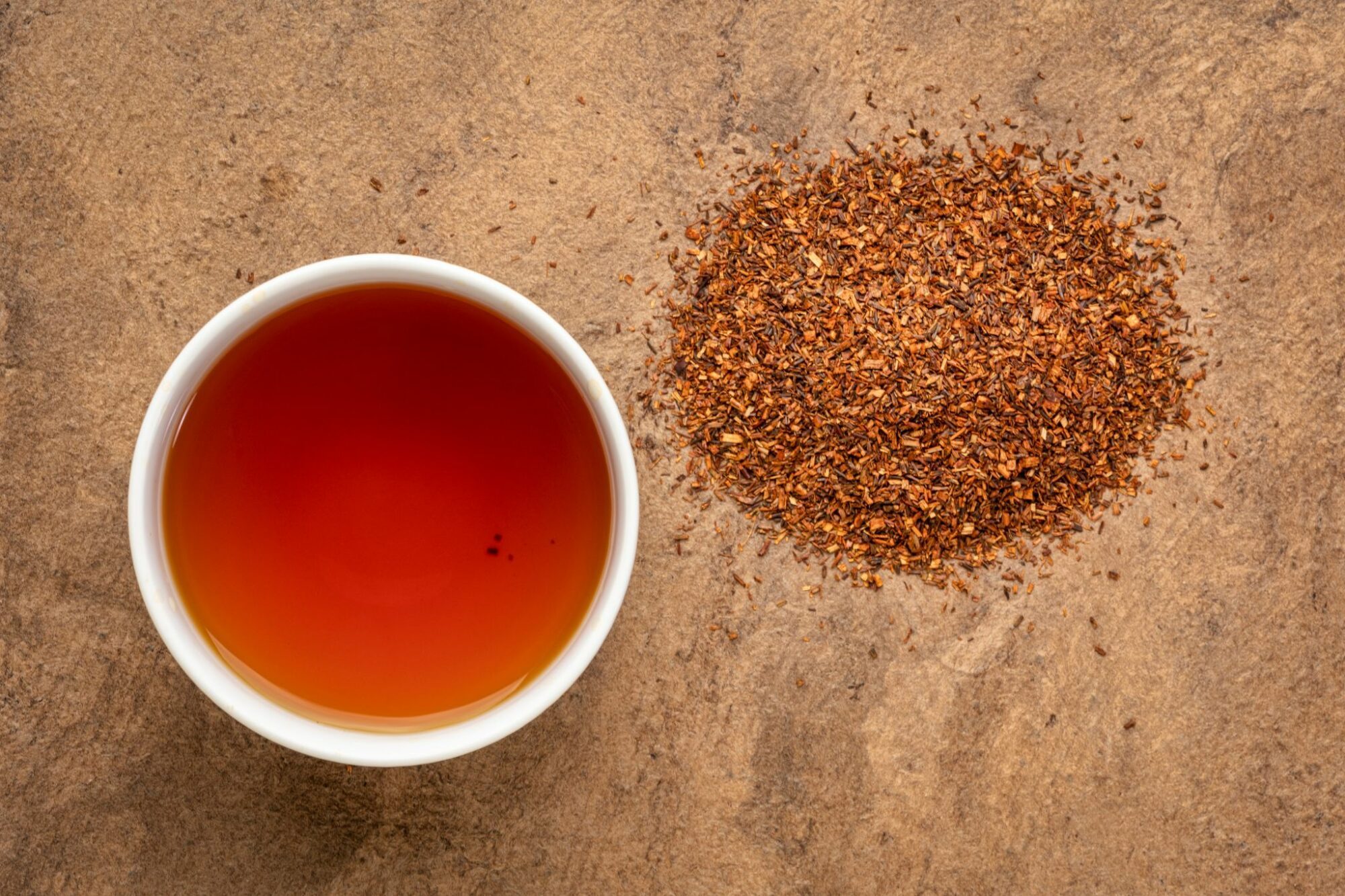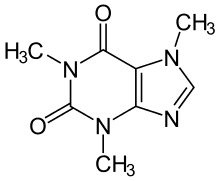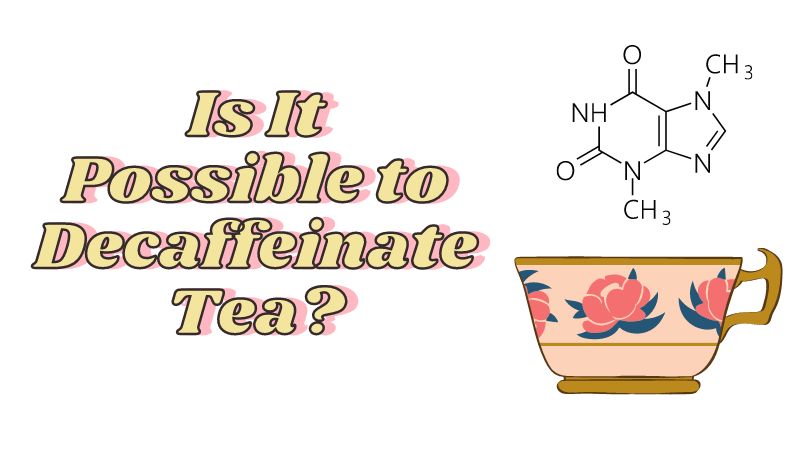One of the most common questions I get asked is about how to decaffeinate tea. There are a lot of myths out there on this subject. In this post, I’ll try my best to clear up some of that misinformation and present the facts as I currently understand them.
Which Teas Contain Caffeine?
All tea naturally contains caffeine because they are all made from the same type of plant. The amount can vary considerably depending on a variety of factors. Surprisingly, the category of tea is not one of them. Check my post on what determines caffeine content in tea for more information on that. Matcha is generally considered to be the highest in caffeine because you are ingesting the entire tea leaf. With a few exceptions like Yerba Mate and Guayusa, herbal teas do not contain caffeine because they are not made from the tea plant (Camellia Sinensis).

Separating Myth from Fact
It is often repeated that you can decaffeinate tea by steeping it for anywhere from 30 seconds to 5 minutes, depending on who you ask. This was even taught by leading industry institutions until fairly recently. The truth is that it is impossible to remove all of the caffeine from your tea.
In a 19996 scientific study called Tea preparation and its influence on methylxanthine concentration, it was concluded that the tea would need to be steeped for 15 minutes to reduce the caffeine by 100%. Would you want to drink your tea after that? Most teas would have no flavor left at all. You would also be losing antioxidants and other benefits. That’s a bit like throwing the baby out with the bathwater, right?
You may ask yourself, what about the decaffeinated teas that I buy at the store? Most commercial teas are decaffeinated using carbon dioxide under extreme pressure. The leaves are moistened with water and then put into a chamber with CO2. At the end of the process the caffeine mixture is collected and the leaves are dried.
Minute amounts will remain behind in the leaves. Most of us won’t feel the effects because it is such a small amount but that does not mean that there is zero caffeine. Taste is affected no matter how well done the process may be. Many companies will add additional tea extract to decaff blends to make up for that loss of flavor.

Is Caffeine Bad for You?
Caffeine often takes on a negative connotation but it will not harm the average person. It is a metabolic stimulant with proven health benefits that people have been consuming for thousands of years. According to the FDA, an average healthy adult can safely consume up to 400 milligrams of caffeine a day.
It is important to keep in mind that caffeine can affect people differently. Some conditions or medications may make you more sensitive. I can drink matcha right before bed without any issues but not everyone has that luxury. If caffeine is a significant concern for you my recommendation would be to stick to herbal infusions.
TLDR: It is just not possible to completely decaffeinate tea.
Is there something in this post that surprised you? What caffeine myths did you believe in the past? I’d love to hear from you in the comments below!
Suggested Reading
Here are some recommended resources about caffeine and tea.
- CAFFEINE AND TEA: Myth and Reality by Nigel Melican
- De-bunking the At-Home Decaffeination Myth by Bruce Richardson
- Analysis of Caffeine by Camellia Sinesis Tea House
- Can caffeine be rinsed from tea? by Happy Earth Tea
This post was originally published on July 22nd, 2015. It was revised and updated on September 5th, 2022.
Help Support This Site

Support my work in tea by joining my Patreon community. For $2-$5 a month you’ll receive access to exclusive behind-the-scenes content, my private Discord server, surprise quarterly packages, and more!

You are the first person I’ve heard say that the pre-steep doesn’t fully decaffeinate tea – this is very useful information – thank you! Do you know if it reduces the caffeine content much at all? Even if it just reduces the caffeine, I would still be interested in doing this pre-steep, but of course I don’t want to do it if I’m just wasting hot water.
I’m so glad you found this post useful! It varies a lot depending on what kind of tea it is and how you are brewing it. Most studies I’ve come across say that you would need to brew the tea for at least 15 minutes in order to remove most of the caffeine. As you can imagine, there would be very little flavor left after that. When caffeine is a concern it would be best to go with herbal infusions.